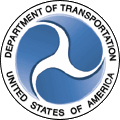The US Department of Transportation announced today that they were implementing new policies designed to protect airline passengers. The rules will take effect this summer and include:
- Tarmac Contingency rules are now extended to foreign carriers operating at U.S. airports. They must adopt and adhere to contingency plans and not keep passengers waiting to take off in excess of four hours. These plans must be coordinated with Customs and Border Patrol and the TSA.
- Foreign carriers are now included in the regulation requiring carriers to advise passengers how to file a complaint and provide substantive responses within 60 days.
- Regulations requiring Customer Service Plans are now extended to foreign carriers operating at U.S. Airports.
- Standards for these plans for both U.S. and foreign carriers include:
- On Time baggage delivery, including refunding fees in the event baggage is not delivered in a timely fashion
- Prompt Refunds, including those of optional fees for services a passenger was unable to use due to an oversale or cancellation
- Allowing reservations to be held for 24 hours, or canceled without penalty if made a week prior to the departure date
- Increases compensation for denied boarding to a minimum of $650/$1300, or 2005/400% of the one-way fare, whichever is higher.
- Adds an inflation adjustment to the above compensation every two years.
- Requires compensation to award ticket holders
- Requires that carriers verbally offer a check or cash if they also offer a travel voucher if the passenger is involuntarily bumped
- Full Fare advertising is now mandatory, and ads must include the full price to be paid, including any government taxes and clarified notice requirements on ‘each-way’ fares that may be purchased only on a roundtrip basis
- Changes in Bag Fees and Allowances must appear on a carrier’s homepage for three months
- Allowances must appear on eticket confirmations, and on the first page with a fare quote
- Fees must also appear with a prominent link on their home page
- The same fees must apply throughout a passenger’s journey
- Price Increases may not occur after purchase
- Prompt notification of flight status changes
- Carriers may not limit a passenger and force them to pursue litigation in a particular inconvenient venue
None of these, on the face of it, seem to be a problem. However, carriers, perhaps legitimately, feel this is infringing on their freedom. This is especially noticeable for the foreign carriers, who claim that asking them to comply with these regulations and those imposed by other nations would be confusing and difficult.
We’ll be very interested to see how this affects travel as it takes effect.

